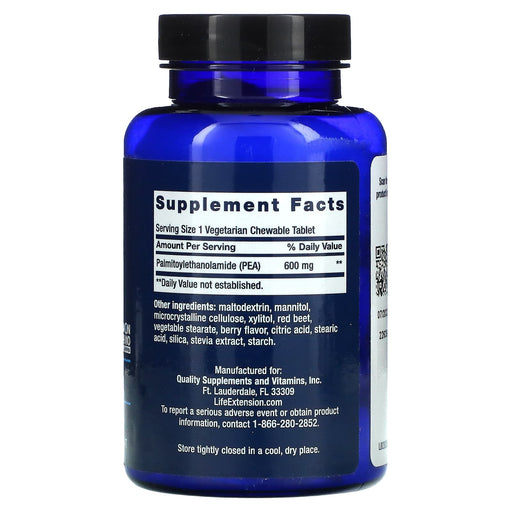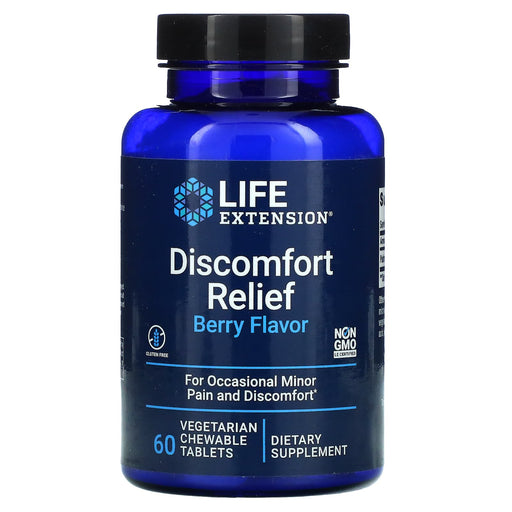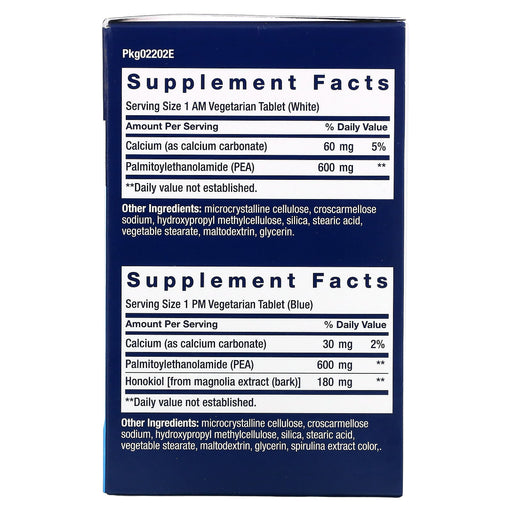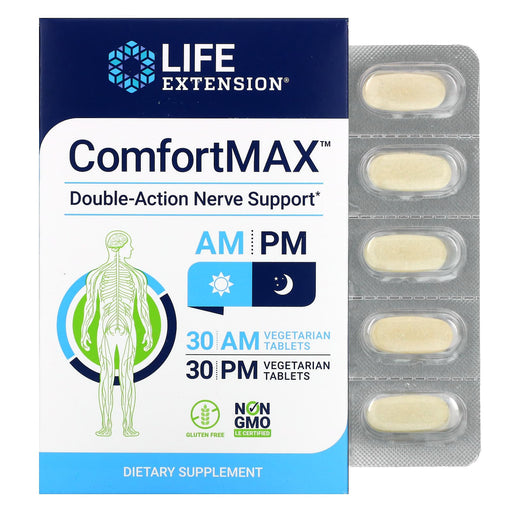
Harnessing the Potential of Palmitoylethanolamide (PEA) for Pain Relief and Immune Support
In the search for natural solutions to support pain management and overall well-being, palmitoylethanolamide (PEA) has emerged as a promising supplement with a range of potential health benefits. This fatty acid compound, naturally produced by the body and found in certain foods, has gained attention for its ability to modulate pain signaling and support a healthy immune response.
Understanding Palmitoylethanolamide (PEA)
Palmitoylethanolamide is an endogenous fatty acid amide that belongs to the family of N-acylethanolamines (NAEs). It is synthesized naturally by the body in response to inflammation or tissue damage and is also found in small amounts in foods like egg yolks, soybeans, and peanuts.
PEA works by interacting with receptors in the endocannabinoid system, which plays a crucial role in regulating pain, inflammation, and immune function. By modulating the activity of these receptors, PEA can help reduce pain signaling, support a healthy inflammatory response, and promote overall immune balance.
Benefits of Palmitoylethanolamide (PEA) Supplementation
Incorporating PEA supplements into your health routine may offer several potential benefits, including:
- Pain Management: PEA has been shown to help reduce various types of pain, including neuropathic pain, chronic pain, and pain associated with conditions like fibromyalgia and multiple sclerosis.
- Immune Support: PEA may help modulate the immune system, supporting a balanced inflammatory response and promoting overall immune health.
- Neuroprotection: Some studies suggest that PEA may offer neuroprotective properties, helping to support healthy brain function and protect against age-related cognitive decline.
- Gut Health: PEA may help support a healthy gut barrier function and promote a balanced inflammatory response in the digestive tract, potentially benefiting those with inflammatory bowel conditions.
- Skin Health: PEA has been studied for its potential to support skin health, including reducing inflammation and promoting healing in conditions like atopic dermatitis and psoriasis.
Vitamins that Complement Palmitoylethanolamide (PEA)
To further support the benefits of PEA supplementation, consider pairing it with the following vitamins:
- Vitamin D: Known for its immune-modulating properties, vitamin D may help support a healthy inflammatory response and complement the immune-balancing effects of PEA.
- B Vitamins: B vitamins, particularly vitamin B1, vitamin B6, and vitamin B12, play crucial roles in nerve health and pain signaling, potentially enhancing the pain-relieving benefits of PEA.
- Vitamin E: As a potent antioxidant, vitamin E may help protect against oxidative stress and support the overall efficacy of PEA supplementation.
Choosing the Best Palmitoylethanolamide (PEA) Supplement
When selecting a PEA supplement, prioritize high-quality products from trusted brands, taking into account factors such as:
- Purity and Potency: Choose supplements that are third-party tested for purity and potency, ensuring you receive an effective dose of PEA without contaminants or additives.
- Bioavailability: Look for PEA supplements designed for optimal absorption, such as those using micronized or ultra-micronized forms of PEA.
- Complementary Ingredients: Consider supplements that combine PEA with other natural compounds known to support pain relief and immune health, such as curcumin, boswellia, or omega-3 fatty acids.
Experience the Potential of Palmitoylethanolamide (PEA) for Pain Relief and Immune Support
If you're looking for a natural way to manage pain, support immune health, and promote overall well-being, PEA supplements may be a valuable addition to your health regimen. With its unique properties and potential benefits, this fatty acid compound offers a promising approach to holistic pain management and immune support.
Try our selection of high-quality PEA supplements and experience the potential of this natural, body-own compound for yourself. With a focus on purity, potency, and your individual needs, Health Orchard is your trusted partner in your journey towards optimal health and vitality.
Frequently Asked Questions about Palmitoylethanolamide (PEA)
1. What is PEA palmitoylethanolamide good for?
Palmitoylethanolamide (PEA) is a naturally occurring fatty acid amide that has shown potential benefits for various health conditions, including:
- Pain management: PEA may help reduce chronic pain, such as neuropathic pain, fibromyalgia, and osteoarthritis.
- Inflammation: PEA has anti-inflammatory properties that may help alleviate inflammation throughout the body.
- Neuroprotection: PEA may protect nerve cells from damage and support healthy nervous system function.
- Immune system regulation: PEA may help regulate the immune system and reduce the risk of autoimmune disorders.
- Allergies and asthma: PEA may help reduce the severity of allergic reactions and improve asthma symptoms.
- Gastrointestinal health: PEA may help reduce inflammation in the gut and alleviate symptoms of inflammatory bowel disease.
While PEA shows promise in these areas, more research is needed to fully understand its effects and determine appropriate dosages for specific health conditions.
2. Does PEA have negative side effects?
Palmitoylethanolamide (PEA) is generally well-tolerated, and side effects are rare when taken at recommended doses. However, some people may experience mild side effects, such as:
- Digestive discomfort (nausea, diarrhea, or stomach pain)
- Headache or dizziness
- Dry mouth or skin
- Drowsiness or fatigue
Serious side effects are uncommon, and PEA has a good safety profile when compared to many prescription medications used for similar purposes. However, it's essential to consult with a healthcare professional before starting PEA supplementation, especially if you have pre-existing health conditions or are taking medications that may interact with PEA.
3. How quickly does PEA work?
The onset of action for palmitoylethanolamide (PEA) can vary depending on the individual and the specific condition being treated. Some people may notice improvements within a few days, while others may require several weeks of consistent use to experience significant benefits. Factors that can influence the speed of PEA's effects include:
- Dosage: Higher doses may lead to faster results, but it's essential to follow the recommended dosage instructions and consult with a healthcare professional.
- Condition severity: More severe or chronic conditions may take longer to respond to PEA supplementation.
- Individual physiology: Each person's body may respond differently to PEA, affecting the speed and extent of improvements.
- Consistency of use: Taking PEA consistently as directed is crucial for achieving optimal results.
In general, it's recommended to give PEA supplementation at least 2-4 weeks of consistent use to assess its effects, unless otherwise directed by a healthcare professional.
4. Does PEA make you sleepy?
Palmitoylethanolamide (PEA) is not typically associated with causing drowsiness or sleepiness as a direct side effect. In fact, some studies suggest that PEA may help improve sleep quality in individuals with chronic pain conditions, possibly by reducing pain and inflammation that can interfere with sleep. However, everyone reacts differently to supplements, and some people may experience fatigue or drowsiness as a rare side effect of PEA. If you notice persistent or severe drowsiness while taking PEA, consult with a healthcare professional to rule out any potential interactions with other medications or underlying health conditions.
5. Is PEA good for nerve pain?
Yes, palmitoylethanolamide (PEA) has shown promise in managing nerve pain, also known as neuropathic pain. Neuropathic pain is caused by damage or dysfunction of the nervous system and can be difficult to treat with conventional pain medications. PEA's potential benefits for nerve pain include:
- Reducing inflammation: PEA has anti-inflammatory properties that may help reduce inflammation in the nervous system, which can contribute to neuropathic pain.
- Modulating pain signaling: PEA may help regulate the transmission of pain signals in the nervous system, reducing the intensity of neuropathic pain.
- Protecting nerve cells: PEA may have neuroprotective effects, helping to prevent or reduce damage to nerve cells that can cause neuropathic pain.
Several studies have shown that PEA supplementation can help reduce neuropathic pain associated with conditions such as diabetic neuropathy, carpal tunnel syndrome, and sciatic pain. However, more research is needed to fully understand PEA's effects on various types of neuropathic pain and to determine optimal dosages for treatment.
6. What are the benefits of taking PEA?
The potential benefits of taking palmitoylethanolamide (PEA) include:
- Pain management: PEA may help reduce chronic pain, such as neuropathic pain, fibromyalgia, and osteoarthritis.
- Anti-inflammatory effects: PEA has anti-inflammatory properties that may help alleviate inflammation throughout the body.
- Neuroprotection: PEA may protect nerve cells from damage and support healthy nervous system function.
- Immune system regulation: PEA may help regulate the immune system and reduce the risk of autoimmune disorders.
While these potential benefits are promising, more research is needed to fully understand PEA's effects and determine appropriate dosages for specific health conditions. Always consult with a healthcare professional before starting PEA supplementation.
7. Can you take PEA every day?
Palmitoylethanolamide (PEA) can generally be taken daily, as it is well-tolerated and has a good safety profile when used at recommended doses. Many studies on PEA's therapeutic effects have involved daily supplementation for several weeks or months without significant adverse effects. However, it's essential to follow the dosage instructions provided by the manufacturer or your healthcare professional and not exceed the recommended daily intake. If you experience any persistent or severe side effects while taking PEA daily, discontinue use and consult with a healthcare professional to rule out any potential interactions or underlying health concerns.












